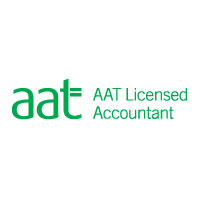Incorporation
All limited & Plc companies in England and Wales are governed by the Companies Act 2006, and registered with Companies House.
All limited companies have a unique company registration number and name. In order to have a limited company your business is incorporated. For a small owner managed business a Limited Company will be formed, PLC’s are larger companies (Public Listed Companies) that are listed on the stock exchange.
There are many reasons for incorporation. A limited company is a legal entity in its own right and therefore the risk of the business to you personally is minimised. The company will now be trading and not you personally. It has its own unique tax reference number and is liable to a corporation tax rate, currently at 20% for a small business.
A current sole trader incorporating their business will normally become a shareholder (owner) of the company and is employed by the company as a director (manager), therefore no longer self employed. Effectively the limited company is owner managed. The salary that you take as a director is deductable against corporation tax.
Taking a salary from a limited company for the owner/manager will generally lead to tax savings as they will no longer pay self employed Class 2 National Insurance contributions or the Class 4 National Insurance contributions currently at 9% on your profits. A director does not have to comply with the national minimum wage regulations and therefore a salary can be set so that they do not pay PAYE or National Insurance. It is advisable to ensure that the level of wage the owner/manager takes does entitle them to stamp of national insurance contributions so that future entitlements to statutory benefits and possible state pensions are not jeopardised. If you run your own payroll please ensure you take the appropriate advice on this.
As a shareholder you may be entitled to dividends if the company is profitable after tax. Dividends are treated as investment income and carry a notional tax credit of 10% and therefore if the level of dividends is planned correctly the individual may save tax. Whenever a dividend is received it is paid net and thus will always be grossed up in to 100% and included in your total income when arriving at total statutory income. If the levels of dividend are calculated without considerate tax planning specific to the individual’s circumstances, the individual could find themselves lumbered with a tax bill they did not expect.
It is not complex to incorporate your own limited company and with its considerable tax savings year on year, even with its increased administration costs the owner/manager could find themselves’ benefitting financially. Not to mention, there are tax reliefs available to incorporate which must not be overlooked.
There is much to HMRC’s legislation and it is advisable you seek the advice of a qualified appropriate accountant.
Please contact : Dawn Johnson FMAAT
All news
 Dawn Johnson is licensed and regulated by AAT under licence number 126542.
Dawn Johnson is licensed and regulated by AAT under licence number 126542.
